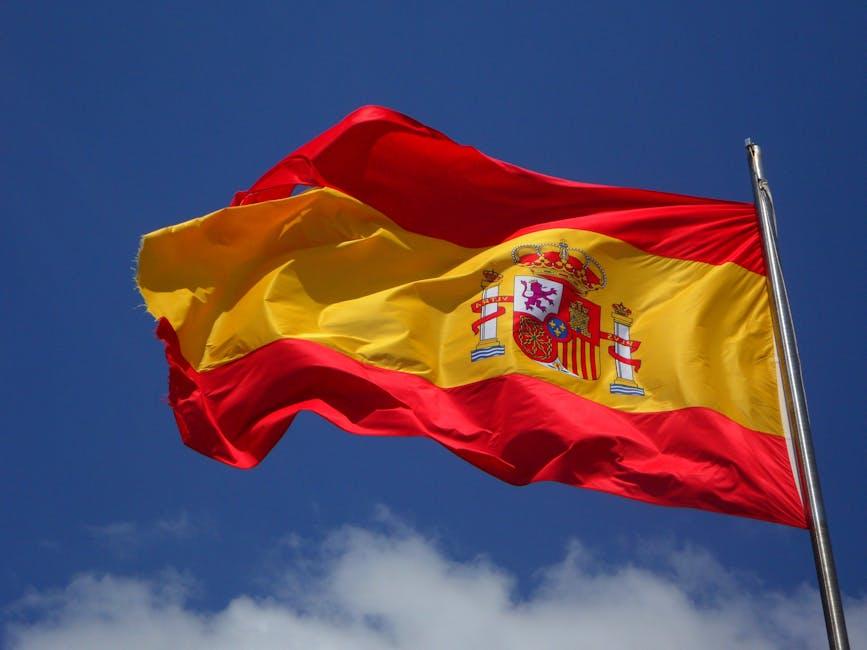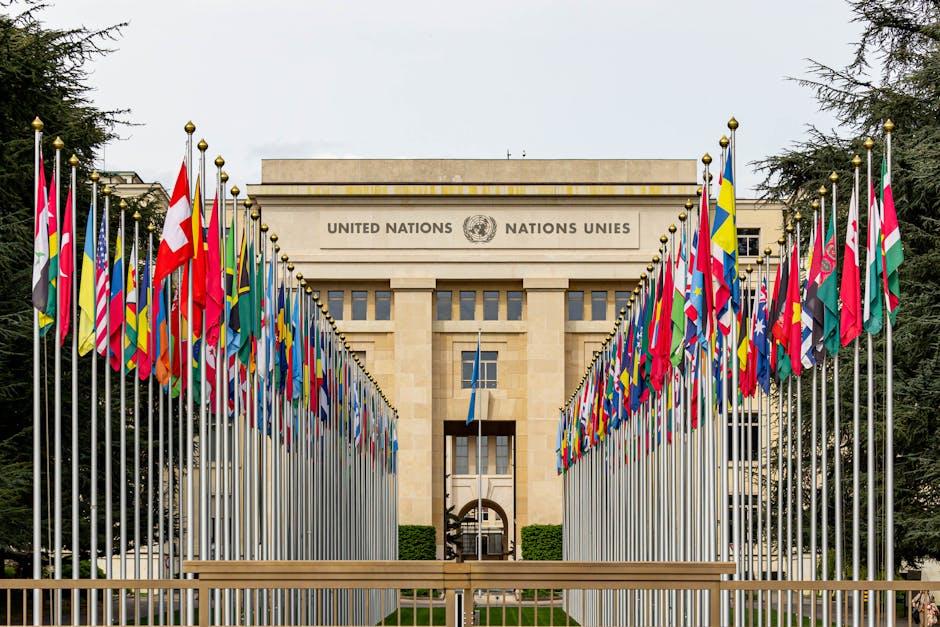In the intricate dance of international relations, where power often speaks in thunderous declarations and grand displays, there exists a subtler force—one that operates not with fanfare, but with quiet determination. The United Nations, often perceived as a backdrop to global events, plays a pivotal yet understated role in shaping the contours of modern diplomacy. This article explores the UN’s discreet influence, revealing how its mechanisms, principles, and persistent efforts mold the way nations engage, negotiate, and collaborate in today’s complex geopolitical landscape. Beneath the headline-making summits and crises lies the UN’s quiet hand, guiding the evolution of diplomacy toward a more interconnected and nuanced global dialogue.
Table of Contents
- The Subtle Art of Mediation in Global Conflicts
- Harnessing Multilateral Platforms for Sustainable Peace
- Innovative Diplomacy Tools in the Digital Era
- Strengthening Collaborative Frameworks for Future Challenges
- Final Thoughts

The Subtle Art of Mediation in Global Conflicts
The delicate orchestration of global peace often unfolds away from the spotlight, where diplomacy’s quiet artisans work tirelessly to prevent conflicts from escalating. These mediators embody a unique blend of patience, cultural sensitivity, and strategic foresight, employing dialogue as their tool to bridge seemingly insurmountable divides. Through an intricate dance of listening and persuasion, they transform adversaries into partners, creating space for mutual understanding without the pressure of immediate resolution. This subtle art shapes the fabric of international relations, fostering environments where cooperation can thrive in the shadows of tension.
Key elements that underscore the effectiveness of this mediation include:
- Impartiality: Maintaining neutrality to build trust on all sides
- Confidential communication: Encouraging honest dialogue without public scrutiny
- Cultural fluency: Navigating diverse traditions and values to find common ground
- Incremental progress: Valuing small, meaningful steps over grand gestures
| Strategy | Purpose | Impact |
|---|---|---|
| Back-channel Negotiations | Private dialogue to lower tensions | Reduces misunderstandings |
| Confidence-Building Measures | Small agreements to build trust | Increases cooperation |
| Inclusive Forums | Engaging diverse stakeholders | Ensures lasting solutions |

Harnessing Multilateral Platforms for Sustainable Peace
In an era marked by geopolitical complexity, the subtle yet potent influence of multilateral platforms like the United Nations is indispensable. These collective arenas do more than just facilitate dialogue; they act as crucibles for forging durable agreements, offering a neutral space where conflicting parties can convene beyond the shadows of adversity. Through inclusive negotiation frameworks and consensus-building mechanisms, they cultivate an environment conducive to trust and mutual respect. This strategic patience and tireless engagement serve not only to prevent conflicts but also to lay the groundwork for long-lasting peace.
Within these frameworks, the role of diplomacy extends beyond formal treaties into the realm of sustained cooperation. Key elements that define this approach include:
- Shared accountability: Encouraging all parties to invest in peace as a collective responsibility.
- Adaptive conflict resolution: Employing evolving strategies tailored to specific cultural and political landscapes.
- Empowerment of local voices: Elevating grassroots perspectives to ensure solutions resonate with impacted communities.
| Platform | Focus | Peacebuilding Tool |
|---|---|---|
| Security Council | Conflict resolution & sanctions | Diplomatic Pressure |
| General Assembly | Global dialogue & norms | Multilateral Resolutions |
| Peacebuilding Commission | Post-conflict recovery | Coordination & Funding |

Innovative Diplomacy Tools in the Digital Era
Modern diplomacy has embraced the transformative power of technology, weaving digital tools into the fabric of international relations. Virtual summits, AI-driven data analysis, and real-time social media monitoring have revolutionized how diplomats communicate and negotiate on the global stage. These innovations facilitate swift decision-making and enhance transparency, allowing diplomatic actors to respond dynamically to crises and public sentiment. Importantly, the UN has pioneered several of these approaches, championing platforms that foster collaboration beyond borders and time zones.
Among the most impactful digital innovations are:
- Secure communication networks that safeguard confidential negotiations from cyber threats.
- Data visualization tools that translate complex global trends into actionable insights.
- Participatory digital forums enabling broader stakeholder engagement and citizen diplomacy.
| Tool | Main Benefit | Impact on Diplomacy |
|---|---|---|
| AI-Powered Translation | Instant multilingual communication | Breaks language barriers, accelerating dialogue |
| Blockchain Voting | Transparent decision-making | Ensures integrity in multilateral elections |
| Virtual Reality Simulations | Immersive scenario planning | Prepares diplomats for complex negotiations |

Strengthening Collaborative Frameworks for Future Challenges
In an era where global crises are increasingly complex and intertwined, the art of diplomacy demands innovation and resilience. The United Nations serves as the unseen architect behind many of these advancements, weaving together diverse nations into a tapestry stronger than the sum of its parts. By fostering inclusive dialogue and nurturing partnerships across cultural and political divides, the UN ensures that cooperation evolves beyond mere formality into a powerful engine for sustainable peace and development.
Key elements that characterize this collaborative evolution include:
- Embracing multilateralism not only as policy but as a practice ingrained in every negotiation.
- Leveraging technology and data sharing to anticipate conflicts before they ignite.
- Institutionalizing flexibility to adapt frameworks according to emerging global challenges.
| Framework Aspect | Strategic Benefit |
|---|---|
| Inclusive Stakeholder Engagement | Builds trust, enhances legitimacy |
| Rapid Response Mechanisms | Mitigates escalation & saves lives |
| Continuous Learning & Feedback | Improves policy adaptability |
Final Thoughts
As the world’s challenges grow ever more complex, the UN’s subtle yet steadfast influence continues to shape the contours of modern diplomacy. Behind the scenes and beyond the headlines, its quiet hand guides negotiations, fosters dialogue, and nurtures the delicate art of peaceful coexistence. In an era where voices often clash loudly, the UN’s enduring presence reminds us that diplomacy is not always about grand gestures—but about the patient weaving of understanding, trust, and cooperation in the fabric of global relations.



